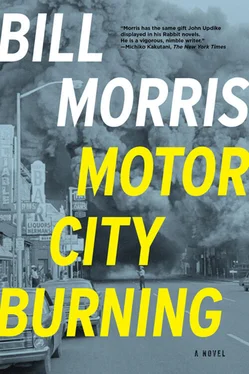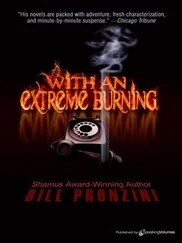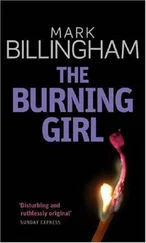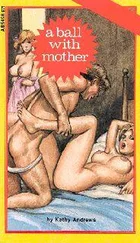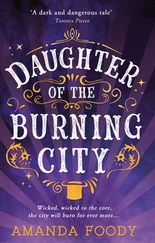Bledsoe said, “You sit there and tell me with a straight face that my fingerprints are on some murder weapon, and I tell you I know for a fact you’re lying. Same with the Schlitz can. I haven’t touched a can a Schlitz in years.” He leaned back in his chair. “Time to cut the shit, gentlemen. You going to charge me with a crime or not? If so, let’s get it on. I got a lawyer’s phone number right here in my pocket.”
Doyle knew then that they were dead in the water. Jimmy shot him a look that said he knew it too. They both believed there was a third man on the roof because the prints on the Winchester didn’t match Willie Bledsoe’s and, based on a set of prints they got from the military police at the San Diego Navy base, they didn’t match Wes Bledsoe’s either. So they were pretty sure Willie was lying about being alone on the roof with his brother, but they had no lever to pry the truth out of him. Of course it was possible that Wes or Willie had fired the fatal shot, then wiped down the gun, and someone else’s prints got on it later. Doyle and Jimmy were hoping that the wiretap and the eyewit and the photograph of the victim and the knowledge that there were people in custody would spook Bledsoe into confessing, maybe into giving up the name of the third man on the roof, at the very least the names of some of Wes’s customers. They had gotten signed confessions with a lot less. But Bledsoe was way too cool for that — and while that didn’t mean he was definitely innocent, it meant it would be damn near impossible to prove he was guilty, which amounted to the same thing. And Bledsoe seemed to know that the detectives didn’t have anywhere near enough evidence to charge him. Doyle knew what Jimmy was going to say next because he always said it when a suspect asked if they were going to charge him with a crime. This time, though, it was the wrong thing to say.
“No,” Jimmy said, “we’re not going to charge you just yet, but I’d be perfectly fuckin happy—”
Bledsoe held up a hand. Then he reached in his wallet and placed a black and gold business card on the table. Jimmy picked it up. “Look here. Man has Clyde Holland handling his legal representation. Nothin but the best for Mr. Willie Bledsoe.” Jimmy’s bluster was pathetic, a beaten man trying to save face. He said, “How long you been knowin Clyde the Glide?”
“We met in the bleachers at Tiger Stadium on Opening Day. That’s it. I’m not saying another word. Where’s the telephone?”
Willie Bledsoe never made the call to Clyde Holland. Doyle rode down with him in the elevator, neither man making eye contact, not a word passing between them. Then Doyle watched him walk across the marble lobby and through the swinging doors onto Beaubien Street. The bounce was back in his stride. It made Doyle almost happy to watch him melt into the night, still a free man. Hadn’t Doyle gotten a similar break — possibly an even bigger break — on the night Wilson Lee Pryor died?
Doyle was now convinced Willie Bledsoe was not their shooter. And for the first time he was convinced they would never find out who was.
WHEN WILLIE GOT TO THE BOTTOM OF THE STAIRS HE TURNED around and took one last look at 1300 Beaubien Street. Its limestone walls were sooty near the ground, as though rain had stained them with the blackest filth the earth had to offer. Each round-topped window was adorned with a bronze lion’s head. They were all sticking their tongues out at the world. Fuck you too, Willie thought. Goodbye and good riddance.
He walked to Woodward and boarded a northbound DSR bus. He would fetch his Deuce from Plum Street in the morning. He hurried to the back of the empty bus and watched police headquarters and the rest of downtown recede. It all shrank quickly, becoming small and insignificant and then disappearing, already a thing of the past, a trifle, nothing.
Here I am again, Willie thought, riding a bus while my life takes another dizzying turn. As the bus moved out Woodward, he realized that the things he’d just learned inside the yellow room may have had the power to free him, but they lacked the power to absolve him of a single thing. That was not how the world worked. Absolution was beyond the reach of most men. All he was hoping for when he’d walked into that yellow room was to save himself and his brother from justice that wasn’t just, to survive the myth that one more wrong could somehow make all the other wrongs right. When he walked into the yellow room the only thing that mattered was that he and Wes both remain free. And they had.
When the bus stopped in front of the Seven Seas to pick up a passenger, Willie considered getting off and having a few belts. Even at this late hour the place was still packed with people celebrating Denny McLain’s historic win. But he stayed on the bus because he couldn’t wait to see Octavia and tell her his good news.
He already knew how his book ended — with that despondent bus ride from Atlantic City to Alabama in 1964. Now, thanks to the two homicide cops, he knew how his story ended, too.
It ended during the riot, on the night Thomas Henderson sprang Willie and Walter Mitchell from jail. When Willie got home that night he must have played Coltrane’s “My Favorite Things” fifteen, twenty times. Then he switched to “A Love Supreme.” Coltrane had been dead more than a week, but it wasn’t until that night that Willie began to appreciate how much he was going to miss him. Lying on the floor of his darkened living room, sweating in the heat, listening to ’Trane and drinking can after can of Stroh’s, Willie could hear sirens and gunfire and shouting and he kept hearing the angry woman from the basement garage: When I get out this hole, The Man gonna PAY. . .
As the beer went to work, Willie’s body had filled with something he had never felt before. He had felt murderous rage before, on the night that white cop pulled him over, taunted him, humiliated him. But now he was feeling something far more complicated, something far worse, a mixture of pain and shame and rage that would be unbearable to live with for a single day. He understood that he had to make this thing go away, he had to purge it, or it would be the end of him. But how?
A fist pounding on his door woke him up. He had drifted off to sleep on the floor. His first thought was that the police had come back for him, and he crawled to the door, terrified, not making a sound. When the pounding finally stopped he heard sobbing out in the hall, a man sobbing. “Open up, bruh! It’s me, Wes! Open the fuck up!”
At first Willie thought his brother had been shot. Then he saw that there was a wicked gash over his left ear — a piece of skull was visible — and the blood was pouring down the side of his face, soaking his shirt. His pants were wet from where he’d pissed himself. Willie ordered him to take off his clothes and sit in the bath tub, and for the next hour he cleaned the gash and listened to his brother babble about how cops and Guardsmen had busted in on the craps game at the Algiers annex and lined everyone up in the hall and pistol-whipped them and ripped the clothes off the white girls and took people into rooms and shot them. Wes wasn’t sure how many were dead. He couldn’t stop sobbing. Willie thought his brother was drunk, then he thought he’d lost his mind, but after a while, remembering his own experience, Wes’s story started to make the worst kind of sense.
Finally, when Wes’s scalp stopped bleeding, Willie bandaged it with gauze and tape. The cut would need stitches. Willie thought of the night at the veterinarian’s house in Montgomery, that bandage on the gash on John Lewis’s head, the stitches in his own throbbing lip.
Wes took a long hot shower and put on a clean pair of Willie’s sweatpants and a T-shirt. Then Willie got two beers from the kitchen and they sat on the living room floor in the dark listening to ’Trane while Willie told the story about Walter Mitchell flying in, about the firemen and the beatings and the filthy garage, about Thomas Henderson bailing them out and the mayor calling to apologize. When he finished telling the story he could see, even in the stuffy darkness, that his brother’s eyes were shining.
Читать дальше
